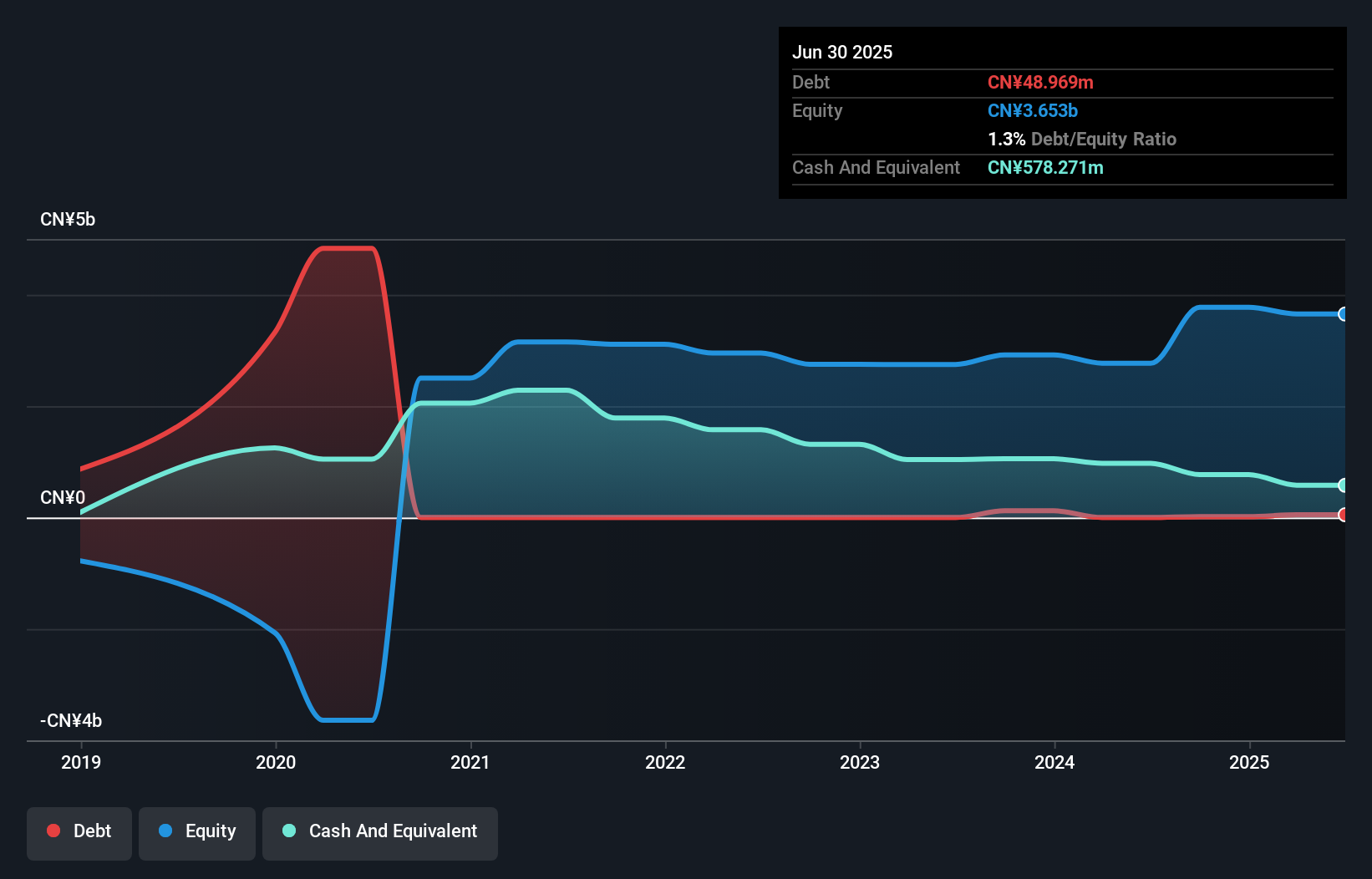Warren Buffett famously said, 'Volatility is far from synonymous with risk.' It's only natural to consider a company's balance sheet when you examine how risky it is, since debt is often involved when a business collapses. We note that Ocumension Therapeutics (HKG:1477) does have debt on its balance sheet. But the more important question is: how much risk is that debt creating?
When Is Debt A Problem?
Debt and other liabilities become risky for a business when it cannot easily fulfill those obligations, either with free cash flow or by raising capital at an attractive price. Ultimately, if the company can't fulfill its legal obligations to repay debt, shareholders could walk away with nothing. However, a more frequent (but still costly) occurrence is where a company must issue shares at bargain-basement prices, permanently diluting shareholders, just to shore up its balance sheet. Of course, debt can be an important tool in businesses, particularly capital heavy businesses. The first step when considering a company's debt levels is to consider its cash and debt together.
What Is Ocumension Therapeutics's Debt?
The image below, which you can click on for greater detail, shows that at June 2025 Ocumension Therapeutics had debt of CN¥49.0m, up from none in one year. However, it does have CN¥578.3m in cash offsetting this, leading to net cash of CN¥529.3m.

How Strong Is Ocumension Therapeutics' Balance Sheet?
We can see from the most recent balance sheet that Ocumension Therapeutics had liabilities of CN¥154.7m falling due within a year, and liabilities of CN¥89.2m due beyond that. On the other hand, it had cash of CN¥578.3m and CN¥173.0m worth of receivables due within a year. So it actually has CN¥507.4m more liquid assets than total liabilities.
This surplus suggests that Ocumension Therapeutics has a conservative balance sheet, and could probably eliminate its debt without much difficulty. Simply put, the fact that Ocumension Therapeutics has more cash than debt is arguably a good indication that it can manage its debt safely. When analysing debt levels, the balance sheet is the obvious place to start. But it is future earnings, more than anything, that will determine Ocumension Therapeutics's ability to maintain a healthy balance sheet going forward. So if you want to see what the professionals think, you might find this free report on analyst profit forecasts to be interesting.
See our latest analysis for Ocumension Therapeutics
In the last year Ocumension Therapeutics wasn't profitable at an EBIT level, but managed to grow its revenue by 75%, to CN¥544m. With any luck the company will be able to grow its way to profitability.
So How Risky Is Ocumension Therapeutics?
We have no doubt that loss making companies are, in general, riskier than profitable ones. And we do note that Ocumension Therapeutics had an earnings before interest and tax (EBIT) loss, over the last year. Indeed, in that time it burnt through CN¥393m of cash and made a loss of CN¥249m. But at least it has CN¥529.3m on the balance sheet to spend on growth, near-term. Ocumension Therapeutics's revenue growth shone bright over the last year, so it may well be in a position to turn a profit in due course. By investing before those profits, shareholders take on more risk in the hope of bigger rewards. When analysing debt levels, the balance sheet is the obvious place to start. However, not all investment risk resides within the balance sheet - far from it. For instance, we've identified 1 warning sign for Ocumension Therapeutics that you should be aware of.
At the end of the day, it's often better to focus on companies that are free from net debt. You can access our special list of such companies (all with a track record of profit growth). It's free.
New: AI Stock Screener & Alerts
Our new AI Stock Screener scans the market every day to uncover opportunities.
• Dividend Powerhouses (3%+ Yield)
• Undervalued Small Caps with Insider Buying
• High growth Tech and AI Companies
Or build your own from over 50 metrics.
Have feedback on this article? Concerned about the content? Get in touch with us directly. Alternatively, email editorial-team (at) simplywallst.com.
This article by Simply Wall St is general in nature. We provide commentary based on historical data and analyst forecasts only using an unbiased methodology and our articles are not intended to be financial advice. It does not constitute a recommendation to buy or sell any stock, and does not take account of your objectives, or your financial situation. We aim to bring you long-term focused analysis driven by fundamental data. Note that our analysis may not factor in the latest price-sensitive company announcements or qualitative material. Simply Wall St has no position in any stocks mentioned.
About SEHK:1477
Ocumension Therapeutics
Operates as an ophthalmic pharmaceutical platform company in the People's Republic of China.
Flawless balance sheet with high growth potential.
Market Insights
Community Narratives



